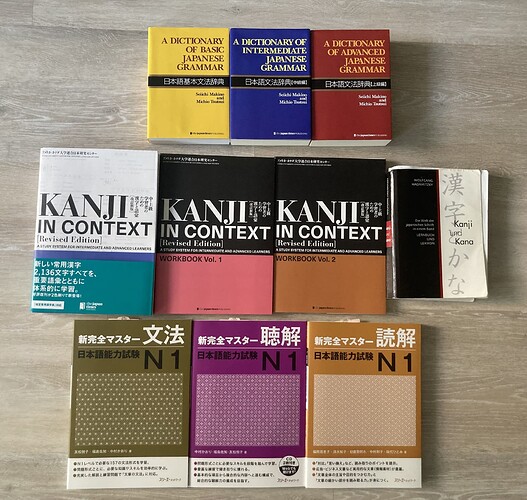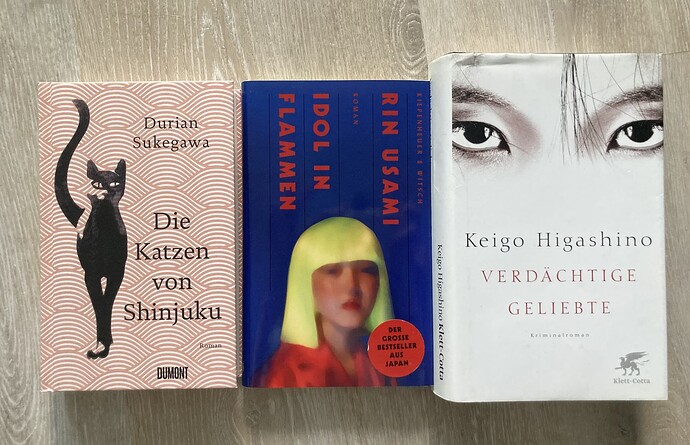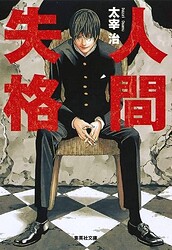After being inspired by some study logs on Bunpro, I decided to start one myself, in order to keep myself accountable and keep track on my progress.
My study journey so far:
I started self-studying Japanese when I was about 10 years old and especially fell in love with Kanji. I would spend my whole pocket money on importing manga magazines and practiced reading hiragana and katakana, as well as basic kanji. When I was 20, I started to study Japan studies at university and spent a semester at a university in Japan. I probably reached N3 level by the end of my bachelor‘s degree (I never took the JLPT until then, though, but my knowledge probably was intermediate)
After my graduation, I took a looong break (several years) from seriously engaging with Japanese. In May 2023, I eventually decided to pick up reading in Japanese again. I started with 秒速5センチメートル and was shocked how little I was able to read. Grammar wasn’t really a problem, but I noticed that I didn’t recognize most of the kanji, let alone the vocabulary! I decided to sign up for Anki and created a vocabulary deck from the words from 秒速5センチメートル. However, I noticed that it’s not leading me anywhere, if I just randomly learn vocabulary without a strong fundament and knowledge about kanji.
3 months later, in August 2023, I fished out my old kanji book from my student days and started learning all 常用漢字 from scratch. I literally started on August 9, 2023 with Kanji No. 1 一 and worked my way all up to Kanji No. 2141 脹 (May 23, 2024). I learnt several kanji a day and with each Kanji, I learnt 3-5 words. I made sure to only choose compound words that I had previously learnt, and for each word, I created a new flashcard in Anki. I reviewed my Anki deck every day and kept learning new kanji and words every day, too. I also made sure to practice writing. I spent at least 2 hours a day learning, oftentimes up to 4 or even 6 hours. Everyday, I would read a few pages from some light novels to wrap up my study-day.
Now:
When I look back, I noticed that my reading comprehension has improved so much and now I am able to read 秒速5センチメートル relatively smoothly.
Of course, I still need to learn kanji every day, but I am confident now that I can read pretty good in comparison to the beginning of my re-start one year ago. However, when I took the JLPT N2 in July, I noticed that I lacked grammar. I do understand the gist of most texts that I read now, because I have good knowledge of kanji, and knowing the context of the text helps, too, but I really noticed that grammar is one of my weak points.
I came across Bunpro about two weeks ago and just started learning the N2 grammar. I also skimmed through N5, N4 and N3 grammar, and this is my current status:
Since I am going to start my master‘s degree in Japan studies from October this year, and going to study in Japan in my third semester (from October 2025 - March 2926), I target the following goals:
My goals until October 2025:
October 2024: Start master‘s degree in Japan studies.
July 2025: re-take the JLPT N2
October 2025: study in Japan
Grammar:
Revisit N3 grammar through Bunpro that I am not 100% comfortable with.
Learn N2 grammar through Bunpro
Learn N1 grammar after finishing N2 through Bunpro
Reading:
Finish reading コンビニ人間 (57/133 pages)
Finish reading ライオンのおやつ ( 130/226)
Start reading 死神の精度 afterwards
Listening comprehension:
Find a podcast or more that I stick to and practice listening every day for 30 minutes. Any recommendations is welcome, as I don’t love listening comprehension very much. But it’s another weak point of mine, so I really need to find a way to stick with it.
Kanji:
Keep on reviewing my Anki decks for Kanji and vocabulary every day
Keep on adding new vocabulary to to my decks from the books I‘m reading.
I am not sure how to best keep track now, but I think I‘ll start with short daily updates. I might change this later.
If you‘ve read until here, thank you so much! I would be glad if you‘d tag along and am open for any advice.


 ファイト
ファイト 



 I will work with them once I feel comfortable with N2 content.
I will work with them once I feel comfortable with N2 content.
 As of now, I haven’t consulted my professor about it, but I do have an idea in mind. I would like to explore the usage of language and specifically of kanji in modern japanese literature. Since I learnt all 常用漢字 for about 10 months straight and didn’t do anything besides this, I developed the wish to learn more and more about them. And since I also like to read and fostered my (kanji) reading skills and understanding of japanese through japanese light novels and lighter books in the past year, I developed a strong interest in japanese literature. I would like to explore how kanji are used to create certain images, more layers or multi-faceted meanings to a text. I don’t know yet how many texts I will focus on, or if I will only use texts of one specific author etc. This is going to get clear when I talk to my professor and dig into secondary literature (which I also researched the past few days).
As of now, I haven’t consulted my professor about it, but I do have an idea in mind. I would like to explore the usage of language and specifically of kanji in modern japanese literature. Since I learnt all 常用漢字 for about 10 months straight and didn’t do anything besides this, I developed the wish to learn more and more about them. And since I also like to read and fostered my (kanji) reading skills and understanding of japanese through japanese light novels and lighter books in the past year, I developed a strong interest in japanese literature. I would like to explore how kanji are used to create certain images, more layers or multi-faceted meanings to a text. I don’t know yet how many texts I will focus on, or if I will only use texts of one specific author etc. This is going to get clear when I talk to my professor and dig into secondary literature (which I also researched the past few days).


